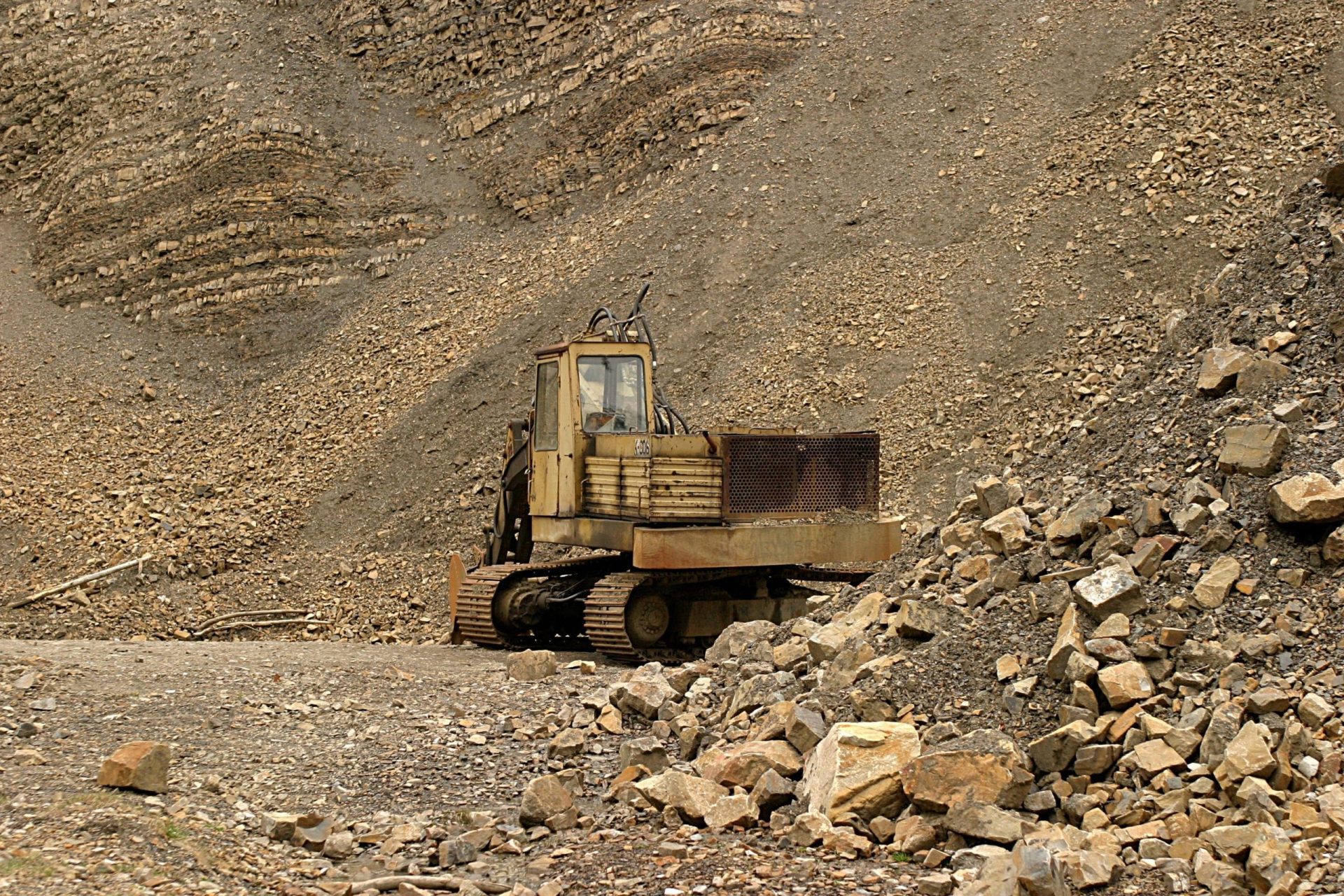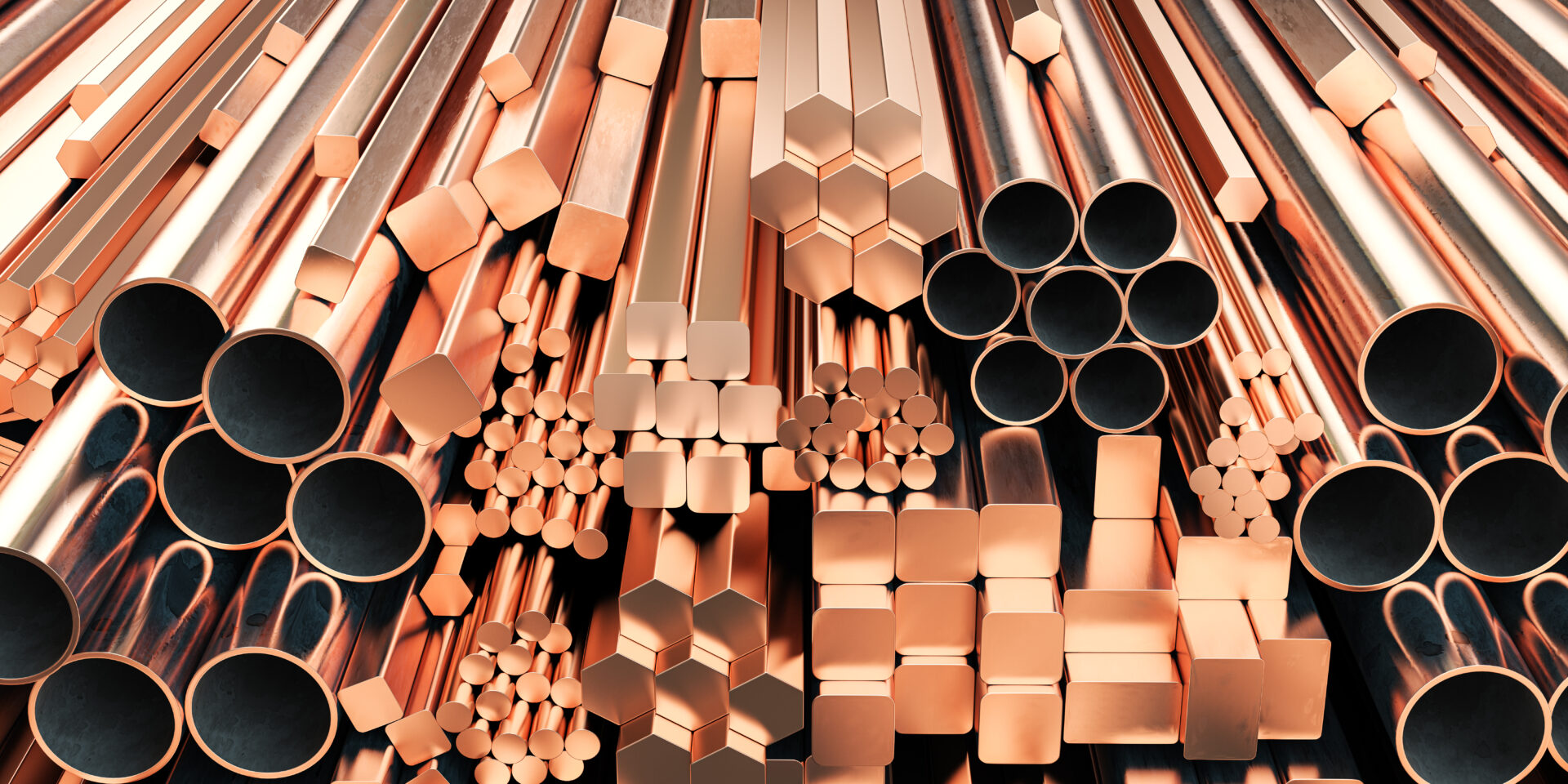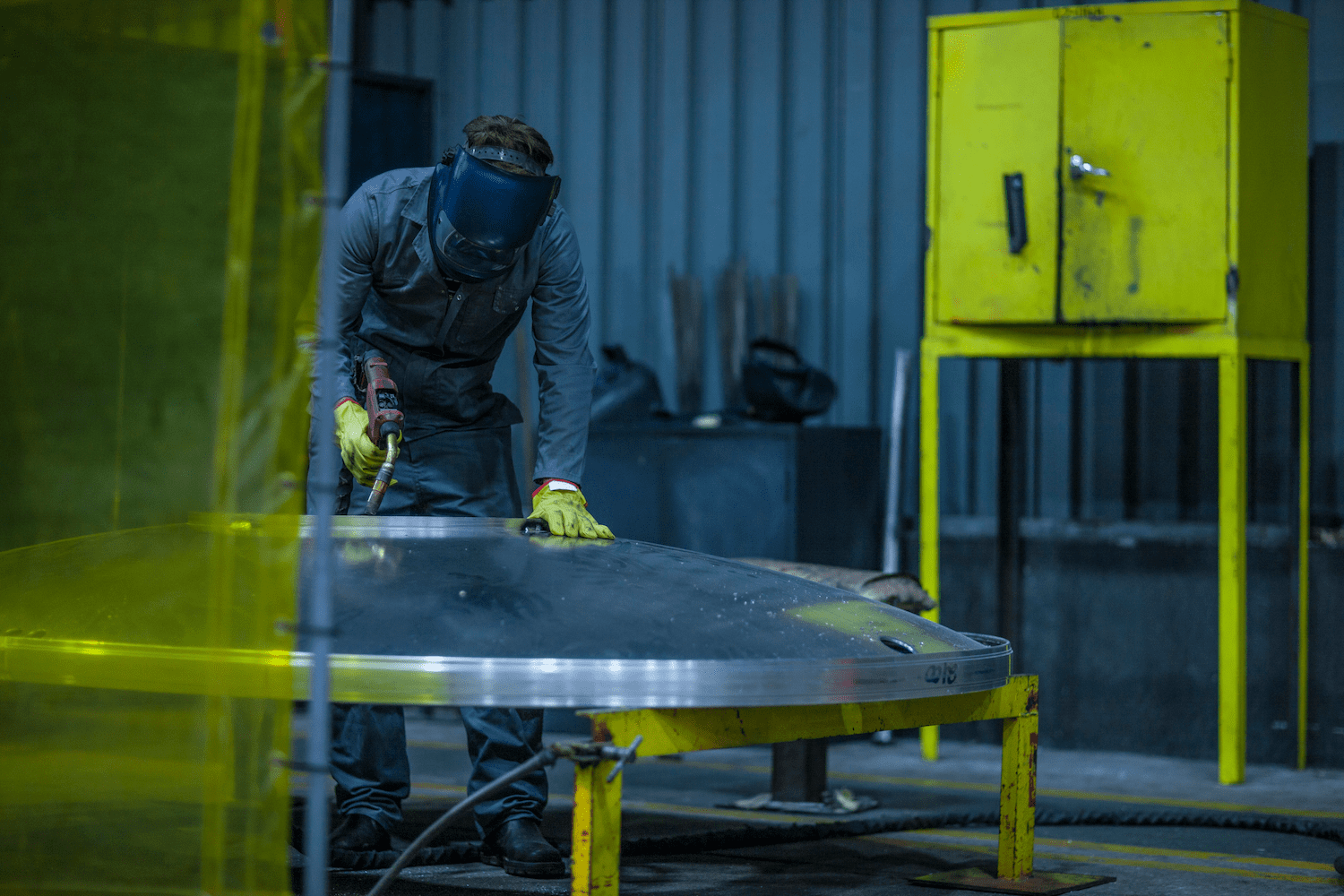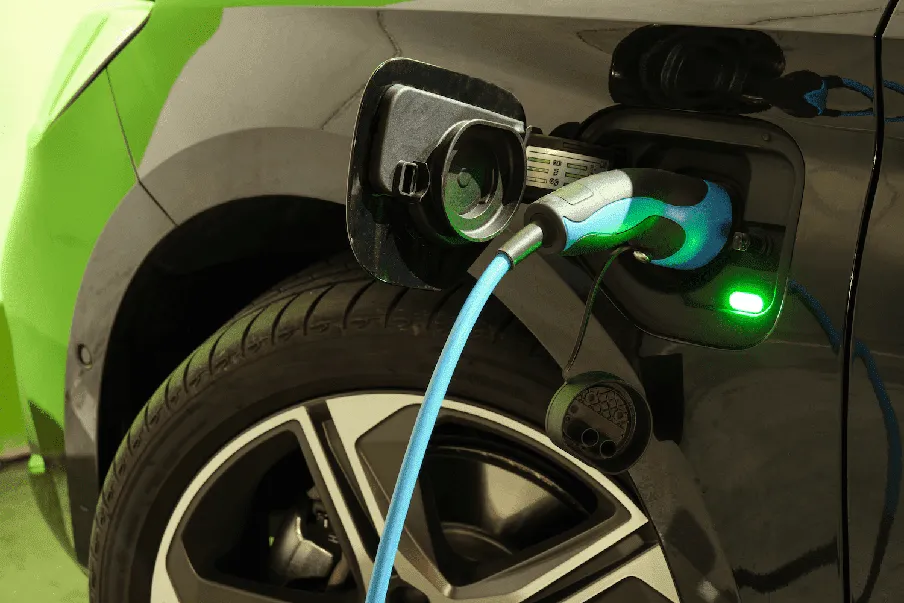
Ore conservation is a major benefit of scrap metal recycling. Here’s why.
There are a lot of benefits to recycling scrap metal, and that includes how it helps our environment.
One of the most important benefits is the conservation of ore. There’s a limited supply of metal ore on the planet, and recycling reduces the amount of virgin ore needed to be mined by manufacturers.
The bottom line is it’s important to understand the potential environmental impact of moving a metal product through its lifecycle.
So what exactly is ore, and why is it so important to use recycling as a means to preserve it?
What is ore mining?
First of all, minerals with elements that include metals can be found in ore, which is a type of rock the minerals get extracted from. Ores are extracted from the earth through mining. Then they are refined to get the most valuable elements within them.
The ore rock contains traces of metallic iron. And they can vary in color, including red, grey, yellow, or purple. It’s in high demand, since up to 98 percent of iron ore is used in the production of steel. The methods for extracting iron ore include drilling, blasting and excavating.
Once iron ore is removed from the ground, the next production phase is beneficiation. That involves dissolving rock material to get the mineral. Iron in its purest form is then shipped to global markets.
Mining and refining metal ores is simply not a sustainable process. It’s been well determined that the amount of metals present on earth is fixed. It’s a resource that could become scarce.
That’s why the recycling of metals is so important. Metals can be easily recycled and reused. And that eliminates the need to continue mining, or refining more of it.
Today, the U.S. recycles 150 million metric tons of scrap materials each year. The Institute of Scrap Recycling Industries reports that we recycle:
* 85 million tons of iron and steel.
* 5.5 million tons of aluminum.
* 1.8 million tons of copper.
* 2 million tons of stainless steel.
* 1.2 million tons of lead.
* 420,000 tons of zinc.
Why is it beneficial to Recycle all that Metal?
During the construction and operation phases, there are combustion-related emissions. These come out of the operation of equipment like diesel generators. That can include nitrous oxide, carbon monoxide and sulfur dioxide.
During the clearing of land or ground excavation, fugitive dust emissions can occur during ore loading and unloading, and ore crushing. This industrial air pollution can kill area wildlife and cause industrial-related injuries to workers.
Mining ore can also lead to acid rock drainage. Acid gets created when water and oxygen interact with sulphur-bearing minerals and chemicals within the rocks.
Sulphuric acid can result from mining activities, since the beneficiation process requires dissolving the minerals surrounding the ore. That releases chemicals in the rock. Those chemicals can go into nearby streams, freshwater bodies, and into the atmosphere.
As a result, mining activities can magnify the amount of acid that gets produced. This process is called Acid Mine Drainage. It can pose serious health risks to fish and animals that drink from contaminated water.
And one sulfide mineral found in rock is pyrite, or iron sulfide. When pyrite gets exposed to air and water, it goes through a chemical reaction called oxidation. That process produces acidic conditions that can negatively impact plant growth.
If acid rock drainage isn’t prevented or controlled, it can drain into the water and contaminate streams that run into the local groundwater.
Especially relevant is mining also presents risks for air pollution. At some sites, gas emissions get released into the atmosphere. And they have become a source of health concerns in people. They also have negative impacts on the environment.
How is recycling a better alternative?
Recycling scrap metal provides a lot of clear environmental benefits. Recycling can reduce greenhouse gas emissions produced during the processing operations when metal is made from virgin ore.
There’s also a lot less energy used during the recycling process than when manufacturers rely on mining. It’s been estimated that the savings from using recycled metals, compared to virgin ore, are:
* 92 percent for aluminum.
* 90 percent for copper.
* 56 percent for steel.
Today, 60 percent of steel production comes directly from recycled iron and steel scrap. And this helps to conserve natural resources. If one ton of steel gets recycled, that helps conserve:
* 2,500 pounds of iron ore.
* 1,400 pounds of coal.
* 120 pounds of limestone.
Recycling also helps to preserve something else: Water. Because it gets used in heavy quantities when many metals are being manufactured.
It also conserves energy used in the mining and manufacturing process. It’s been estimated that up to 76 million megawatt hours of electricity can get saved each year by making aluminum from recycled material.
Recycling is not a one-time occurrence. Metals like aluminum and steel can be recycled multiple times. Most important, this cuts down on the energy-intensive process of extracting iron and aluminum ores from the ground. This also reduces transportation costs associated with moving raw ores extracted from mines to manufacturers.
Most of all, the bottom line is we all have a stake in preserving our natural resources. Once they’re gone, they’re not coming back.
Ore Conservation and Scrap Metal Recycling
A great way to contribute to the environment is by bringing all your used scrap metal to a premier recycler like GLE Scrap Metal. Our company has been performing environmentally-friendly processing and recycling of all base and precious metals for years.
We process and re-integrate all recyclable base metals at this family-owned and operated company. We also work hard to contribute to the protection of our natural resources, and to help conserve energy, water and manufacturing costs.
And at GLE Scrap Metal, our commitment to protecting the environment is strong. Our staff is continually trained on environmental procedures.
In addition, the International Organization for Standardization now certifies our Great Lakes Electronics Sterling Heights, Michigan facility.
Because we continue to look for ways to improve our recycling process, and we practice pollution prevention through consistent maintenance, education and operation upgrades.
Most important, we also work closely with professional environmental consultants to ensure we maintain compliance on all environmental laws and standards.
Finally, call GLE Scrap Metal today at 855-SCRAP-88 to request a quote.



